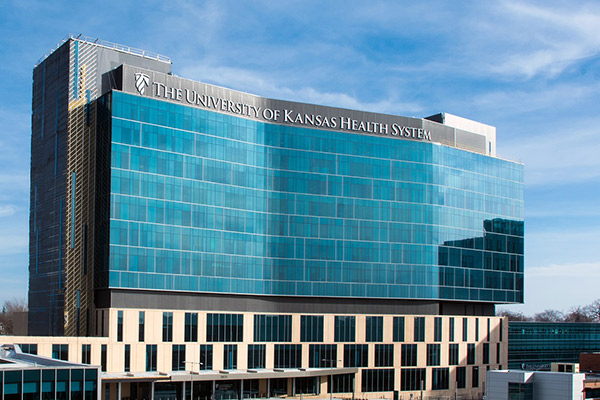The University of Kansas Health System announced on Sept. 1 that all workers, students and volunteers must receive vaccinations by the start of December.
According to their recent press release, the decision was based on studying vaccination data, Centers for Disease Control and Prevention (CDC) recommendations, increasing COVID-19 cases and the Food and Drug Administration’s (FDA) full approval of the Pfizer vaccine.
“We know we are making the right decision for our organization, our employees, our patients and physicians,” said Tammy Peterman, president of the Kansas City division for the University of Kansas Health System. “We continue to strongly encourage everyone in our community to get vaccinated.”
The University of Kansas Health System is now on board with a list of local hospitals who have made similar requirements. St. Luke’s Health System, Lawrence Memorial Hospital, Truman Medical Center, North Kansas City Hospital and Liberty Hospital are among those involved in vaccination requirement policies.
According to Dr. Mary Anne Jackson, dean of the UMKC School of Medicine, UMKC requires its medical students to be vaccinated in order to attend certain clinical sites.
“We anticipate that most, if not all, institutions will implement this requirement in the future,” Jackson said. “As the number of these institutions increases, it could prevent unvaccinated students from attaining the clinical training requirements for graduation.”
Jackson said the COVID-19 vaccine joins a list of other immunizations, such as those for hepatitis B, chickenpox, measles, rubella and influenza, that are necessary to work in a hospital setting.
KU does allow some exceptions to the vaccination requirement, allowing for special exceptions for those with an allergy to the vaccine or for religious reasons.
The Association of American Medical Colleges (AAMC) released a statement back in July urging all of their 172 medical school members across the US and Canada, including UMKC, to begin requiring vaccines.
“Nowhere is this more important than in hospitals,” said Dr. David Skorton, president of the AAMC. “Health care personnel — who have been heroic during this pandemic — are caring for patients with a wide variety of health challenges under the assumption that the health care professionals treating them are not at risk of acquiring or transmitting COVID-19.”
Though some are still hesitant of or resistant towards the vaccine requirement, Skorton reasserted the necessity of the vaccine in the lives of employees and patients alike.
“We have tragically lost some health care personnel to the coronavirus, while others have taken the infection home to their families,” Skorton said. “Vaccinating health care personnel at our member institutions saves lives.”
jmt9w6@umsystem.edu








